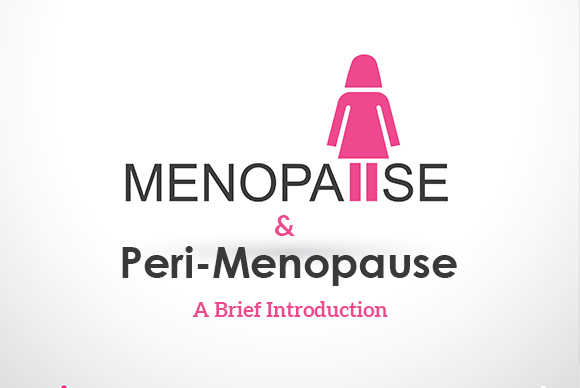Menopause and Peri Menopause – A Brief Introduction
Menopause is the natural cessation of the menstrual cycle in women. It marks the termination of reproductive age. The ovaries are reproductive glands which store eggs and release them one by one each month through the fallopian tube. It also releases the female hormones estrogen and progesterone. Altogether it controls the menstrual cycle and ovulation cycle, both contributing towards natural conception. Gynecologist defines menopause as the phase when the ovaries stop producing the same.
Read more – Hormonal Issues Faced By Women After Menopause
In general, it occurs in the late 40s to early 50s and gives an indication for a few months (sometimes even years) before it. However, it can also happen promptly due to surgical removal of ovaries or uterus or due to any illness. Peri-menopause, on the other hand, is the natural phase that begins 3-4 years before the menopause, but in many cases, it can onset even from the 30s. Women can still conceive and give birth successful while being in peri-menopause.
Several women experience some mild to severe discomfort and annoying symptoms during peri-menopause and menopause.
- A sudden, brief sensation of warmth all over the body, more commonly known as hot flashes
- Vaginal dryness and discomfort during sex
- More frequent urination or the urge to do so
- Persistent insomnia or interrupting sleep cycles
- Mood swings, that might also include periodic or unpredictable depression
- Temporary memory lapse, difficulty in concentration
- Night sweats or sudden cold flash
- Much heavier or lighter, or irregular periods
- Breast tenderness or change in size
- Change in Premenstrual syndrome
- Weight gain along with pain in joints and muscle
- Losing interest in intimacy
- Hair loss
These systems are the indication of ovaries producing less estrogen. In case any women encounter 3 or more of these symptoms for about 3-4 months and is in her late years of childbearing age (or even during), they are highly recommended to seek a gynecologist for a detailed investigation.
Menopause is NOT a disease and cannot be avoided. It is a natural, obvious phase that will onset and eventually be over. Peer to peer talk is quite helpful for most women and so is having awareness related to the changes during menopause. However, menopause comes as a hard time for many women. It is crucial to seek treatment in case the symptoms bother. At ILS Hospitals, our expert gynecologists offer extensive treatment, help, and guidance for women going through the phases of menopause.
Hormonal Issues Faced By Women After Menopause
In this forever changing the world, ‘change’ is the only constant. It is particularly effective when aging is considered. Even though many illnesses keep surfacing through any age, some conditions strike due to aging. Menopause is one such condition that can cause many problems for women going through this stage. Menopause is the transition that marks the end of the reproductive age of a woman.
Today, we will talk about the hormonal issues faced by women after menopause and what needs to be done to address them, as per gynecologists.
There are two particular female hormones, namely estrogen and progesterone in the body. The overall balance and level of these hormones regulated and influence the menstrual cycle and fertility cycle. Their level decreases significantly during the menopause and as a result, it affects the overall health severely. For many women, these effects stay only for a short period of time and for many it stays effective for many years to come.
Symptoms Of Post-Menopausal Condition
Some of the most experienced symptoms of menopause are as follows-
- Irregular Periods Or Spotting
- Mood Swings Without Any Particular Reason
- Hot Flash Or Night Sweats
- Insomnia
- Tenderness And Lethargy
- Brain Fog And Feeling Out Of Focus
- Lack Of Interest In Intimacy
- Experiencing Pain Or Dryness In Intimate Regions
Many women become more susceptible to other conditions such as weight gain, osteoporosis, cardiac ailments, etc. However, the most severe effects often constrain in the mind and require long term medical care.
What Is To Be Done To Address It?
As per many studies, the emotional turmoil is more prevalent among women in western countries, as menopause is considered as a sign of aging. Thankfully, in southern Asian countries, like in India, not many women severely suffer (emotionally) due to menopause, as socially and physiologically, aging often is considered as a mark of wisdom. Though many women find this transition quite easy to deal with, gynecologists acknowledge this as a medical condition and advise to seek treatment in case one is struggling with any discomfort.
Our expert Gynecologist offers effective treatment to the women dealing with the postmenopausal syndrome. Often medication is adequate to deal with the physical symptoms, however, for the mental and behavioral ones, they can also recommend therapy. Moreover, as mentioned earlier that menopause brings many secondary conditions, as a likely scenario, so it is crucial for post-menopausal women to keep their overall health in check as well.












